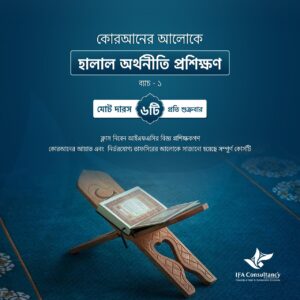Riba is an Arabic term that is often translated as “usury” or “interest.” In Islamic finance and jurisprudence, Riba refers to the prohibition of charging or paying interest on loans, as it is considered unethical and exploitative. The concept of Riba is rooted in Islamic law, or Sharia, and is derived from the Quran and Hadith (sayings and actions of the Prophet Muhammad).
The prohibition of Riba is based on several Quranic verses and Hadith that emphasize the importance of fairness, justice, and avoiding exploitation in financial transactions. Some of the key Quranic verses related to Riba include:
☞ Course Contents:
- Riba (Interest): Introduction And Significance.
- Types of riba, ‘interest’ in conventional and Islamic economics, practical examples and Shariah analysis
- Verses of Riba: Brief Commentary and Review
- Important Shariah related to conventional insurance and banking interest
- Various applications of rebar in modern transactions.
- Some common forms of interest scams.
- Open Question-Answer Session on Riba (every class)
Who is this course for:
1/ For students in Finance and Economics.
2/ Those who are involved in Islamic banking activities regularly.
3/ Especially for scholars and religious authorities who are working on Fiqh and Fatwa.
4/ Those who are aspiring to work in the field of Islamic banking in the future.
5/ For all general individuals who are interested in knowing about Islamic banking.
6/ For all Muslims
Course Features:
Instructors:
- Highly educated scholars with advanced degrees in Fiqh from renowned Darul Iftas in Bangladesh.
- Classes conducted by eminent personalities holding high positions in well-known organizations in Bangladesh.
- Expertise in teaching Islamic finance in light of Shariah principles gained through extensive training in prestigious Darul Iftas.
- Certified Shariah Advisors and Auditors (CSAA) by AAOIFI, the global Islamic economic organization based in Bahrain.
Teaching Methodology:
- Each class incorporates various case studies and practical examples.
- Modern presentation techniques using slides.
- Question and answer sessions.
- Course duration: 8 sessions.
- Duration of each class: 1.30 hours (main class: 1.15 hours, 15 minutes Q&A).
- Delivery mode: Online.





